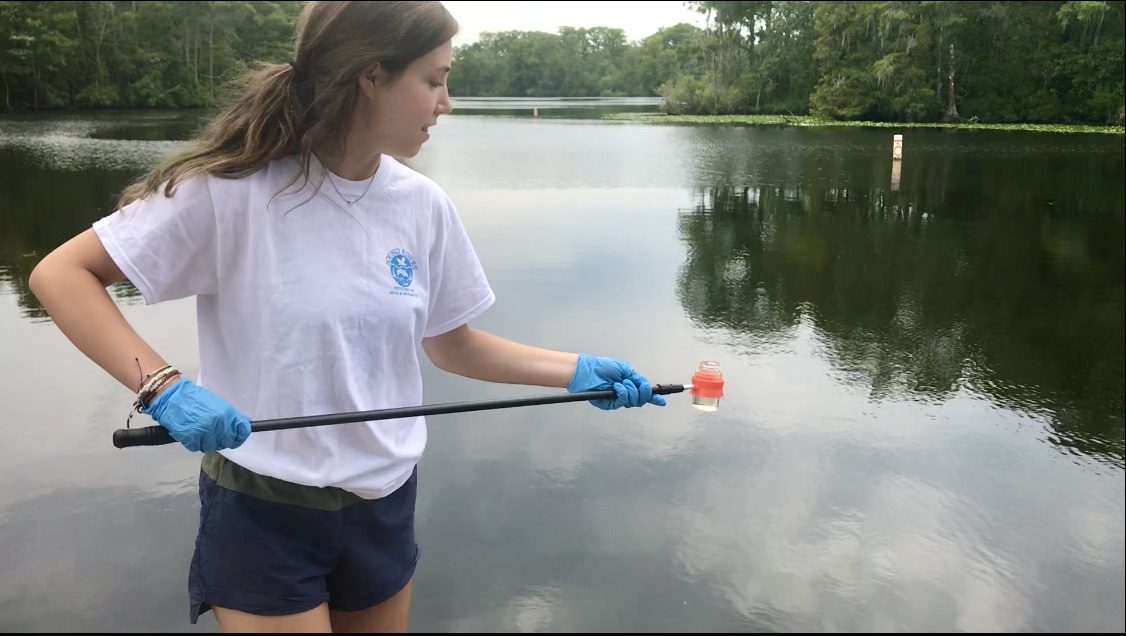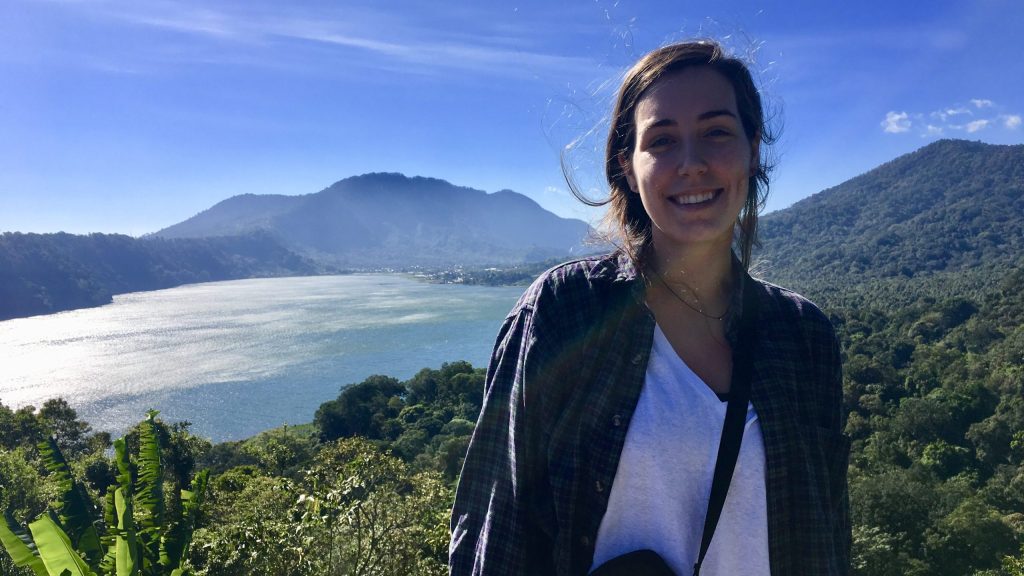Researcher Spotlight – Katie McQuillan

2019-20 Global Change Fellow
PhD Student, Center for Geospatial Analytics
Advisor: Dr. Katie Martin
Every year the Southeast Climate Adaptation Science Center funds a multi-disciplinary cohort of Global Change Fellows representing colleges across NC State University. Here are some highlights about 2019-20 Fellow, Katie McQuillan, and the applied research she’s conducting.
About You
What do you study?
I am a first year PhD student in Geospatial Analytics broadly interested in understanding forest water dynamics now and into the future. I use remote sensing to research the impacts of hydroclimate variability on forests and the downstream consequences for freshwater availability in the southeastern U.S.
What (or who) influenced you to go into this field of study?
I grew up camping with my family and loving exploring outside and kayaking. During undergrad I got involved with a research project exploring the impact of climate change on water resources and found that I really enjoyed doing research and the freedom to investigate questions I personally found interesting.
What do you think is the most pressing issue related to global change?
I believe the most pressing issue related to global change within our lifetimes will be securing access to food and clean water for a growing population. It is increasingly important to understand how more severe disturbances and hydrologic variability will impact human and natural systems in order to implement effective adaptation and mitigation strategies.
What is your dream job?
My dream job would be working at NASA as a research scientist.
About Your Research

What results are you finding?
While I am still in the early stages of analysis, I have been finding some interesting preliminary results that merit further exploration. Over the past semester, I have been researching the role of plant biodiversity in regulating forest drought resilience at the continental scale. Results show that greater levels of biodiversity are associated with increased forest drought resilience dependent on ecoregion and mean annual precipitation (MAP). Interestingly, the relationship between biodiversity and MAP does not hold across all ecosystems, including the temperate rainforests of the Pacific Northwest. The results demonstrate the important role of biodiversity in maintaining resilient forest ecosystems in a changing climate, and the potential vulnerability of systems where drought is a more novel disturbance.
Who will benefit from your research?
My research will primarily benefit communities in the southeastern U.S. who rely on forests for ecosystem services such as access to clean water and carbon sequestration.
How can your research be used to inform management decisions?
My research will (hopefully) be used to inform forest and water management decisions relevant to sustaining healthy forests while also maintaining freshwater availability downstream. Forests are (generally) using more water under global change, even during times of drought, making it particularly challenging to balance forest ecosystem requirements with the needs of human populations who rely on the water downstream.
How would you describe your research to a 3rd grader?
I study how forests impact how much water we have available for drinking.
About Your Global Change Fellow Experience
How do you expect the SE CASC Global Change Fellows Program to impact you and your work?
Through the Global Change Fellows Program I have gained exposure to a more interdisciplinary approach to research that prioritizes structured decision making for tackling complex problems. I hope to include some elements of structured decision making within my own research to make it more directly applicable for guiding forest and water management.
What has been the most rewarding part of being a SE CASC Global Change Fellow?
I think the most rewarding part of being a SE CASC Global Change Fellow is the exposure to perspectives from a variety of fields. Even though we might approach problems differently, we are all working towards similar goals.
What advice would you give to a student that is interested in getting involved in your field?
I think the most important step to take as an undergrad is doing undergraduate research and gaining experience with a scientific programming language! You’ll find out what kind of research setting you enjoy and gain valuable experience working through the scientific process.
